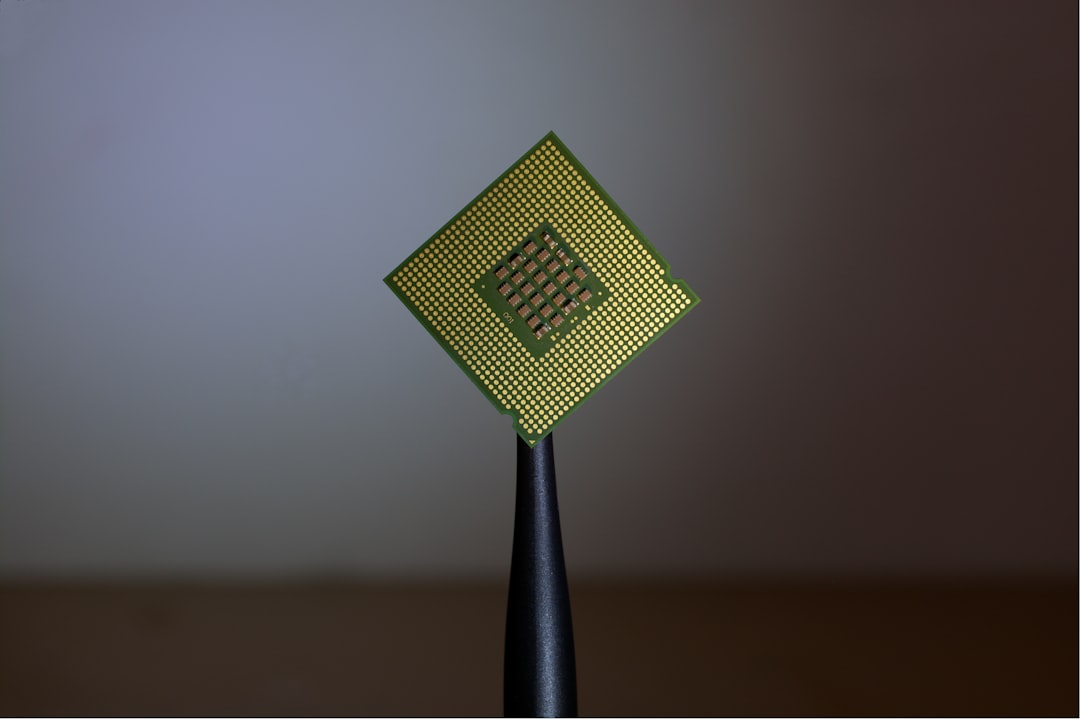- NATURAL 20
- Posts
- Meet Microsoft's New MAI
Meet Microsoft's New MAI
PLUS: US Plans $285M for Chip Twins, Hugging Face Launches LeRobot and more.

AI moves fast. Want to learn how to use AI to power up your productivity, career and business? We’ve got you covered. Join our classroom to get started.
Today:
Meet Microsoft's New MAI
OpenAI-Stack Overflow Collaboration
Meta's AI Models 3X Faster
US Plans $285M for Chip Twins
Hugging Face Launches LeRobot
Meet MAI-1: Microsoft Readies New AI Model to Compete With Google, OpenAI

Microsoft is reportedly working on a new artificial intelligence model, MAI-1, expected to have about 500 billion parameters. This model aims to compete with those created by Google, OpenAI, and others. Led by Mustafa Suleyman, Microsoft acquired most of Inflection AI's staff and intellectual property for $650 million to aid in development.
MAI-1 is anticipated to be showcased at the upcoming Microsoft Build developer conference. Microsoft’s Chief Technology Officer, Kevin Scott, highlighted the company's growing focus on AI models and their integral role across Microsoft products.
API Partnership with Stack Overflow
OpenAI and Stack Overflow have formed a new API partnership to combine the strengths of both platforms. OpenAI will leverage Stack Overflow's OverflowAPI to improve its models and provide accurate technical knowledge directly in ChatGPT. Stack Overflow will utilize OpenAI's models to enhance its OverflowAI project.
We’re thrilled to announce we’re partnering with @OpenAI to bring best in class technical knowledge and the world’s most popular LLM models for AI development together! This groundbreaking partnership with OpenAI will drive our mission to empower the world to develop technology… twitter.com/i/web/status/1…
— Stack Overflow (@StackOverflow)
1:01 PM • May 6, 2024
This collaboration aims to empower developers by providing them with validated, high-quality technical content, enabling them to focus on their work. The new integrations will be available in early 2024. Learn more at Stack Overflow’s API solutions page.
Meta’s new multi-token prediction makes AI models up to 3X faster

Meta researchers, alongside partners, have proposed a new multi-token prediction method to significantly speed up AI large language models (LLMs). This approach allows LLMs to predict multiple tokens simultaneously, improving prediction speed by up to three times and enhancing generative task performance. Though less effective in smaller models, it shows notable gains in larger models, particularly in pattern recognition and byte-level tokenization.
The research aims to provide faster, more accurate inference for enterprise applications like code completion, potentially offering substantial benefits with minimal architectural changes. Further exploration will refine optimal token prediction strategies.
US plans $285 million in funding for ‘digital twin’ chips research

The Biden administration is offering $285 million in funding from the CHIPS and Science Act to establish a CHIPS Manufacturing USA institute focused on "digital twins" for the semiconductor industry. Digital twins are virtual models of physical chips that streamline testing and development.
The institute aims to create a diverse network supporting chip research, development, manufacturing, and workforce training. Interested companies can apply for funding, with a briefing scheduled for May 16. The initiative seeks to boost U.S. semiconductor manufacturing and innovation amidst rising demand for high-powered chips due to the AI boom.
Hugging Face launches LeRobot open source robotics code library
Hugging Face has launched LeRobot, an open-source robotics toolkit aimed at democratizing AI robotics. Led by Remi Cadene, formerly of Tesla, the project provides a comprehensive platform with a versatile library for data sharing and model training. LeRobot integrates with physics simulators for virtual testing and supports various robotic hardware, from simple arms to sophisticated humanoids.
Meet LeRobot, my first library at @huggingface robotics 🤗
The next step of AI development is its application to our physical world. Thus, we are building a community-driven effort around AI for robotics, and it's open to everyone!
Take a look at the code: github.com/huggingface/le…— Remi Cadene (@RemiCadene)
7:08 AM • May 6, 2024
Hugging Face aims to build the largest crowdsourced robotics dataset to inspire a global community. The toolkit and community resources are now available on GitHub and Discord, fostering a new generation of innovative roboticists.
🧠RESEARCH
Large language models (LLMs) excel at mathematical reasoning benchmarks but may overfit due to data leakage. The new GSM1k dataset mirrors the established GSM8k benchmark, revealing a 13% accuracy drop for some models, indicating potential memorization. Advanced models like Gemini/GPT/Claude show minimal overfitting.
The paper introduces FLAME, a factuality-aware alignment method to reduce hallucinations in large language models (LLMs). By identifying factors causing inaccuracies in supervised fine-tuning (SFT) and reinforcement learning (RL), FLAME proposes factuality-aware SFT and RL to improve factual accuracy while maintaining instruction-following ability.
The paper presents Pair Customization, a method that learns stylistic differences from a single image pair to customize text-to-image generative models. By separating style and content into distinct LoRA weight spaces, this approach applies stylistic changes without overfitting. Qualitative and quantitative results confirm its effectiveness in modeling style differences.
The paper introduces LLM-AD, an automated audio description system using GPT-4V(ision). By leveraging powerful multimodal and instruction-following capabilities, it generates audio descriptions without additional training. The system maintains contextual consistency using a tracking-based character recognition module and achieves a CIDEr score of 20.5, comparable to learning-based methods.
STT is a stateful tracking model using Transformers for autonomous driving. It reliably tracks objects in 3D while accurately estimating their velocity and acceleration. By leveraging rich signals from detection history, it optimizes both data association and state estimation. The new metrics S-MOTA and MOTPS measure performance, and STT excels on the Waymo Open Dataset.
🛠️TOP TOOLS
My Ask AI - Resolving up to 75% of customer support requests with AI.
Coze - Build powerful AI agents without code & use GPT4 for free
Hubspot AI - AI for videos, blogs, and support, all in one place
Langtail - Debug prompts, run tests, and observe what’s happening in production
Tabnine - The AI coding assistant that you control
📲SOCIAL MEDIA
If you've made >100 images with Midjourney you can now help us alpha-test image creation on our website. We've also added a 'rooms' feature where you can create in real-time with people around the world. Give it a shot and let us know what you think!
— Midjourney (@midjourney)
6:15 PM • May 3, 2024
🗞️MORE NEWS
Docusign acquires contract management provider Lexion for $165M to add more AI to its IAM platform
DocuSign has acquired Lexion, an AI-based agreement management startup, for $165 million in cash. The purchase strengthens DocuSign's position in Intelligent Agreement Management (IAM). Founded in 2019, Lexion turns contract text into structured data and offers features like search, reporting, and integrations. The founders will join DocuSign in senior roles. VENTUREBEAT
Google Cloud debuts threat intelligence service, AI security tools at RSA
Google Cloud launched new AI-powered cybersecurity tools at RSA, including a threat intelligence service leveraging data from Mandiant and VirusTotal. Other features include malware analysis, hacking group insights, and breach detection. Enhanced tools like Notebook Security Scanner and Model Armor offer better protection against emerging threats. SILICON ANGLE
Nvidia’s DrEureka outperforms humans in training robotics systems
Nvidia, UPenn, and UT Austin researchers introduced DrEureka, an AI technique that outperforms humans in training robotics systems. DrEureka automates reward functions and sim-to-real transfer, enabling efficient robotics training. It improves policies by 34% in speed and 20% in distance while excelling in new tasks like robo-dog yoga ball balancing. VENTUREBEAT
AI Outperforms Humans in Moral Judgments
A study found people rated AI-generated answers to ethical questions as superior to human responses. Participants overwhelmingly preferred AI responses in terms of virtue, intelligence, and trustworthiness. This modified moral Turing test suggests AI's growing role in decision-making and raises concerns about uncritically trusting its moral guidance. NEUROSCIENCE NEWS
Simulated chemistry: New AI platform designs tomorrow's cancer drugs
Scientists at UC San Diego developed POLYGON, an AI platform that accelerates drug discovery by simulating early-stage chemical synthesis. It designed 32 potential cancer drugs targeting multiple proteins. This approach streamlines the process and opens doors for more effective multi-target therapies, potentially revolutionizing precision medicine. PHYS ORG
Sagetap raises $6.8 million to build AI-powered marketplace for enterprise software
Sagetap, an AI-powered marketplace matching enterprise software buyers and sellers, secured $6.8 million in seed funding. It aims to streamline software procurement with targeted, anonymous buyer-seller meetings. The platform analyzes data to recommend vendors, boasting early traction with 14,000 vendors and 5,000 verified tech executives. VENTUREBEAT
Alembic debuts hallucination-free AI for enterprise data analysis and decision support
Alembic debuted a new AI system that claims to eliminate hallucinations in enterprise data analysis. It uses a graph neural network to identify causal relationships rather than correlations, providing deterministic output. The system is already attracting attention from Fortune 500 companies and analysts, positioning Alembic as a key player in the enterprise AI market. VENTUREBEAT
What'd you think of today's edition? |
What are MOST interested in learning about AI?What stories or resources will be most interesting for you to hear about? |

Reply